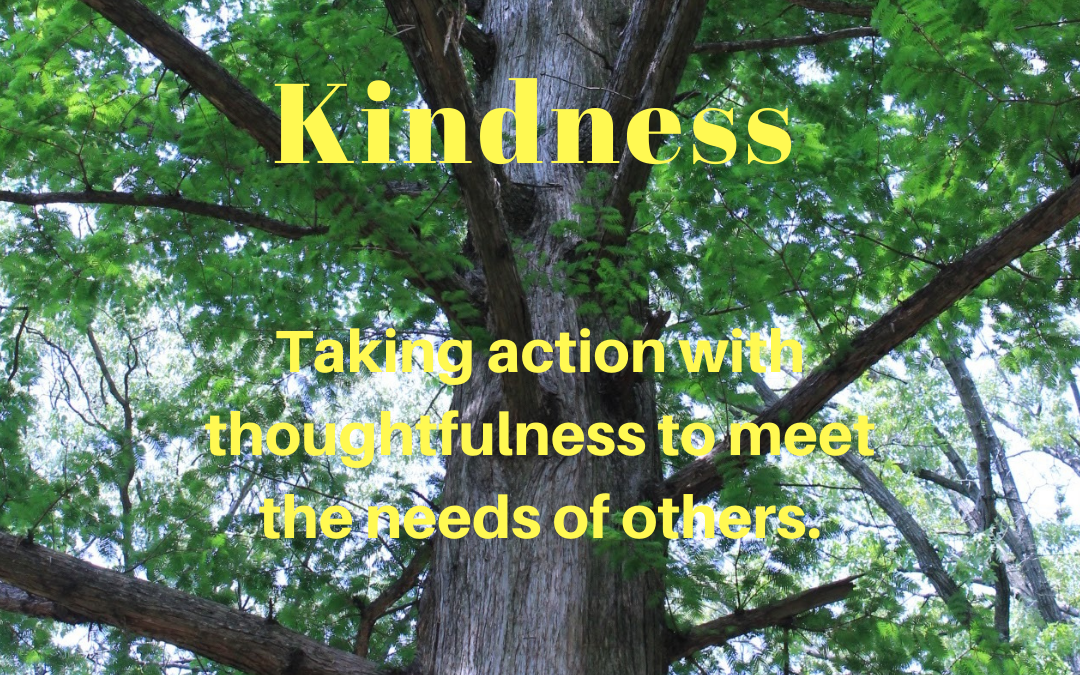
Loyalty
Description
Loyalty is the steadfast commitment to the people, principles, and values we hold dear. It reflects a deep sense of devotion that anchors us, even when challenges arise. Loyalty is not just a passive state of being but an active investment in relationships, requiring care, effort, and resilience to nurture and sustain bonds through life’s ebbs and flows.
To be loyal is to stand firm, supporting others through their triumphs and struggles. It means forgiving mistakes, recognizing the humanity in others, and choosing connection over estrangement. However, loyalty is not blind allegiance but a discerning quality that aligns with integrity. True loyalty requires us to be faithful to others and our values and sense of what is right.
In a broader sense, loyalty strengthens the fabric of communities and societies. It inspires trust, cooperation, and a sense of belonging. Whether in family life, friendships, workplaces, or broader social commitments, loyalty calls us to be dependable, honest, and steadfast, even when circumstances test our resolve.
At its core, loyalty is about creating and preserving the bonds that give life meaning. It is a virtue that reminds us to honor our commitments, cherish the people and ideals that matter most, and remain true to ourselves in all that we do.
Affirmations for Loyalty
1. I honor my commitments to those I care about.
This helps by reinforcing accountability and reminding you to be dependable in relationships.
2. I forgive mistakes and nurture understanding in my relationships.
Practicing forgiveness strengthens loyalty by creating space for growth and resilience in connections.
3. I stay true to my values and principles, even when difficult.
This builds inner loyalty and ensures that your commitments align with your integrity.
4. I stand by my loved ones in good and bad times.
This affirmation acknowledges the importance of consistency and deepens trust and security in relationships.
5. I am loyal to myself and my well-being as I support others.
This reminds you that loyalty begins with self-respect and self-care, preventing burnout or resentment.
6. I listen deeply to understand the needs and feelings of those I care about.
Active listening fosters deeper bonds, making loyalty not just about presence but also about understanding.
7. I invest time and effort in maintaining meaningful relationships.
This practice highlights the value of effort and intentionality in building loyalty over time.
8. I choose my loyalties wisely, guided by wisdom and integrity.
Ensuring loyalty is placed in the right relationships or causes prevents misplaced devotion.
9. I express gratitude to those who are loyal to me.
Acknowledging others’ loyalty strengthens mutual respect and reciprocity in relationships.
10. I trust the process of being loyal, knowing it builds a foundation for lasting connections.
This encourages patience and faith in the value of loyalty, even when immediate results aren’t visible.
Quotes
“The strength of a family, like the strength of an army, is in its loyalty to each other.” — Mario Puzo
“Loyalty means nothing unless it has at its heart the absolute principle of self-sacrifice.” — Woodrow Wilson
“An honest man is not accountable for the vice and folly of his friends.” — Thomas Jefferson
Loyalty In Family Life
Loyalty in family life is the steadfast commitment to support, care for, and respect one another through life’s joys and challenges. For parents, loyalty means being present and dependable, creating an environment of trust and security where children feel valued and protected. It is about standing by each family member with love and understanding, even when mistakes are made or emotions run high.
For children, loyalty is learned by observing and practicing kindness, forgiveness, and reliability within the family. It’s about cherishing the connections they have with their siblings, parents, and extended family, knowing these relationships are built on mutual care and support.
In family life, loyalty is also about shared values and a commitment to the well-being of the whole. It is expressed through actions like keeping promises, showing up for each other, celebrating successes, and comforting one another during setbacks. Loyalty is not blind or unquestioning; it includes honesty and integrity, guiding family members to remain true to their values while supporting each other’s growth.
By cultivating loyalty in the family, parents and children create a strong, enduring foundation of trust and love that empowers them to face life’s ups and downs together. This bond becomes a legacy of resilience and connection, nurturing each individual and strengthening the family as a whole.
Balancing Loyalty
When balanced, loyalty becomes a powerful force for unity, trust, and love in family life. It fosters enduring relationships and creates a sense of belonging. However, an excess of loyalty can lead to blind allegiance, while too little loyalty can weaken bonds. By cultivating complementary virtues, families can ensure loyalty remains a positive influence.
-
-
- Discernment: Discernment helps evaluate when and how to be loyal, ensuring commitments align with integrity and the well-being of all involved.
- Honesty: Honesty ensures that loyalty does not lead to covering up mistakes or enabling harmful behaviors, keeping relationships truthful and healthy.
- Compassion: Compassion softens loyalty, encouraging understanding and forgiveness when family members fall short of expectations.
- Detachment: Detachment prevents unhealthy attachment by allowing family members to maintain their individuality while remaining connected.
- Fairness: Fairness ensures loyalty is not misplaced or applied unequally, promoting balance and mutual respect in relationships.
- Courage: Courage supports loyalty by enabling family members to stand by their values and loved ones, even in challenging circumstances.
- Patience: Patience allows loyalty to endure through misunderstandings or disappointments, fostering long-term commitment.
- Respect: Respect ensures that loyalty honors the boundaries and autonomy of others, creating space for healthy relationships.
- Integrity: Integrity keeps loyalty grounded in moral principles, preventing it from becoming blind or harmful.
- Self-care: Self-care balances loyalty by reminding family members that they must also remain loyal to their own needs and well-being.
-
When loyalty is guided by balancing virtues, it becomes a force that strengthens family bonds without compromising individual well-being or ethical principles. By practicing these virtues, parents, and children can maintain healthy, deeply connected, and thoughtfully supportive relationships. This balance fosters a harmonious family life rooted in love, respect, and integrity.
Joe is a husband, father, grandfather, author, speaker, educator, course creator, and parent/family coach.
He helps parents develop unity, find clarity, communicate, and develop consistency in their parenting with the Four C’s of Successful Families. You can find his work on social media.
In addition, the Four C’s newsletter is enjoyed by many as it encourages parents to self-care, build their relationships with their partners, and raise their children.
And he loves to golf!






